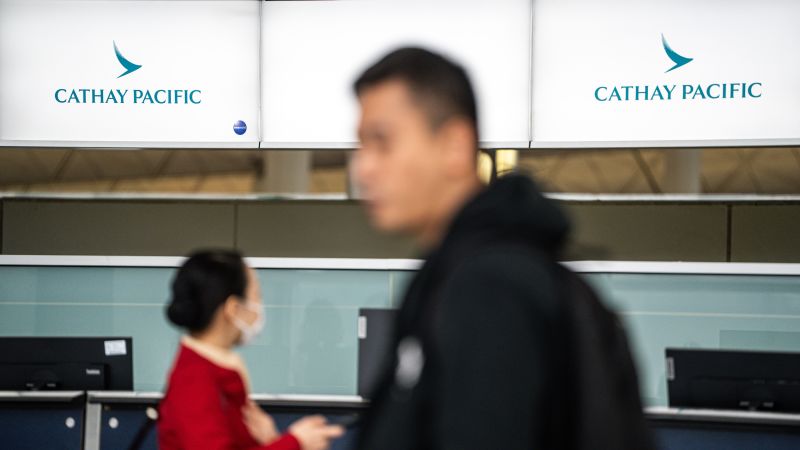Hong Kong’s flag carrier Cathay Pacific has experienced engine problems with its Airbus A350 fleet, leading to the cancellation of dozens of flights. An engine component failure was identified on flight CX383, prompting a thorough inspection of the entire 48-plane fleet. The airline has secured spare parts and begun repair work, resulting in the cancellation of 24 flights over two days. The specific nature of the engine issue has not been disclosed.
The incident involving the A350 comes after rival Boeing has faced its own series of safety crises, including a mid-air blowout on one of its 737 Max flights. Cathay Pacific has contacted Airbus, the aircraft manufacturer, and engine maker Rolls-Royce, regarding the engine problem. The A350 fleet uses Rolls-Royce’s Trent XWB turbofan engine models. Rolls-Royce has confirmed that flight CX383 was powered by a Trent XWB-97 engine and is working closely with relevant parties on the investigation.
During the incident, flight CX383 displayed abnormal behavior by flying south instead of north and making circles off Hong Kong before returning safely to the city. The Trent engine model involved in the issue was previously criticized by the president of Emirates for its durability and servicing prices. Rolls-Royce has stated that it is working to improve the Trent XWB-97 engines and denies any defect in the engine’s design. Boeing has also faced challenges with its 777X aircraft, including engine problems that led to testing being paused.
The 777X, touted as the world’s largest and most efficient twin-engine jet by Boeing, has faced delays and cost overruns, with a revised launch date of 2025. The ongoing issues with both the Airbus A350 and Boeing 777X highlight the challenges faced by major aircraft manufacturers in maintaining the safety and reliability of their fleets. This story will continue to be updated with additional information as it becomes available, emphasizing the importance of continuous monitoring and maintenance in the aviation industry to ensure passenger safety.


